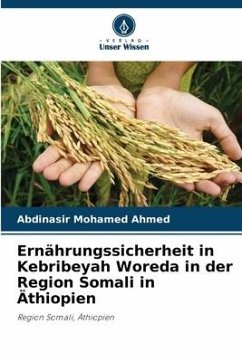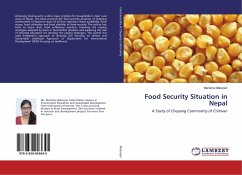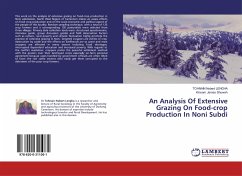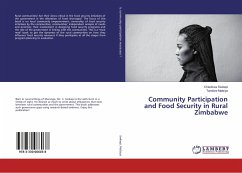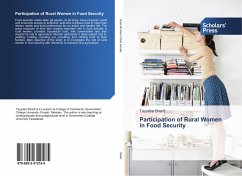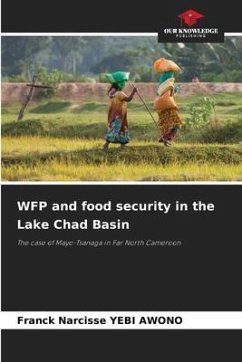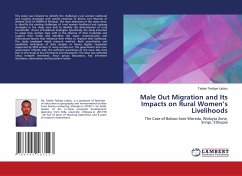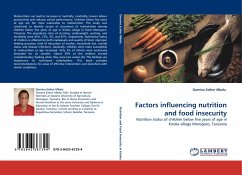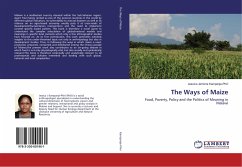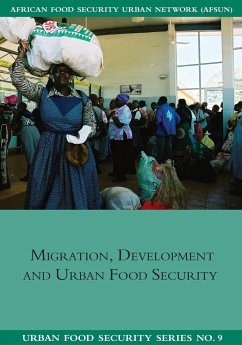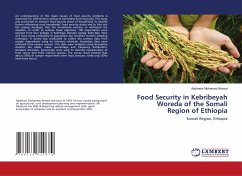
Food Security in Kebribeyah Woreda of the Somali Region of Ethiopia
Somali Region, Ethiopia
Versandkostenfrei!
Versandfertig in 6-10 Tagen
27,99 €
inkl. MwSt.

PAYBACK Punkte
14 °P sammeln!
An understanding of the major causes of food security problems is important for interventions aiming at minimizing food insecurity. This study was conducted to measure food security status of households, to identify factors influencing rural households' food security status and to find out the coping strategies that the households practice to withstand the situation. In order to achieve these objectives, 100 respondents were selected from four kebeles in Kebribeya Woreda namely Kaho,Gilo, Hare and Guyo Using probability to population size stratified random sampling technique. A survey was cond...
An understanding of the major causes of food security problems is important for interventions aiming at minimizing food insecurity. This study was conducted to measure food security status of households, to identify factors influencing rural households' food security status and to find out the coping strategies that the households practice to withstand the situation. In order to achieve these objectives, 100 respondents were selected from four kebeles in Kebribeya Woreda namely Kaho,Gilo, Hare and Guyo Using probability to population size stratified random sampling technique. A survey was conducted to collect the primary data from sample respondents using an interview schedule. Secondary data were collected from various sources. The data were analyzed using descriptive statistics like tables, mean, percentage and frequency distribution, standard deviation, percentage were used to describe characteristics of food secure and food insecure groups. The survey result showed that about(70%) of sample respondents were food insecure, while only (30%) were food secure.



